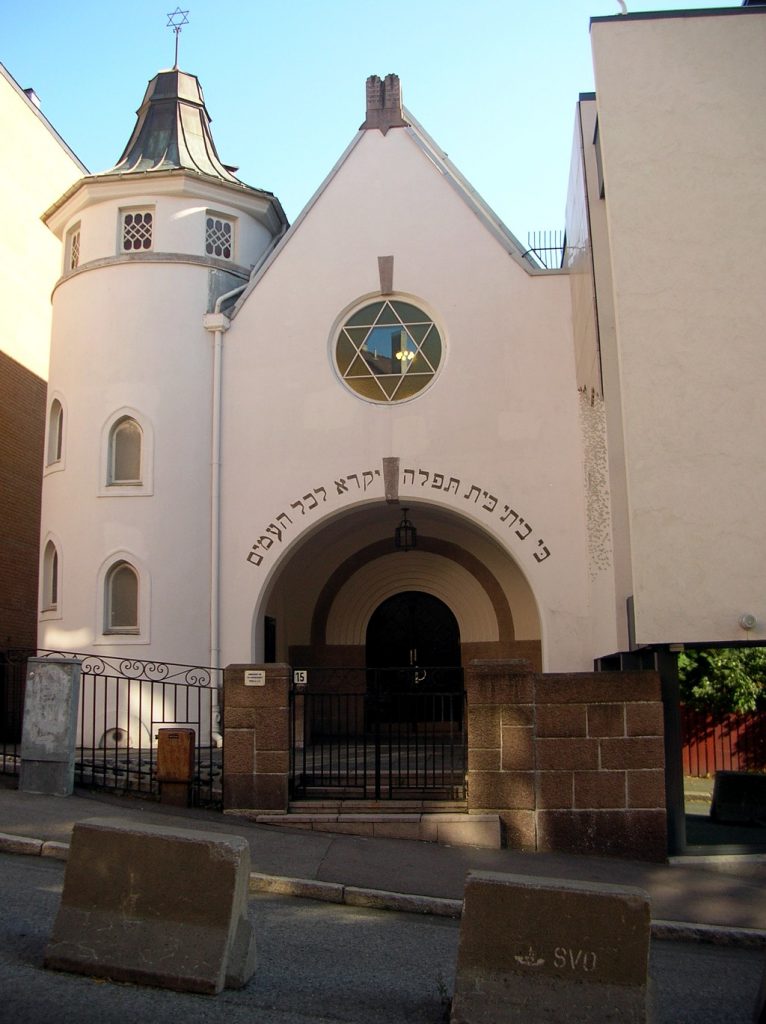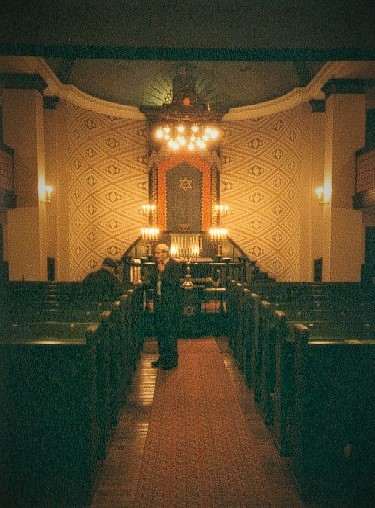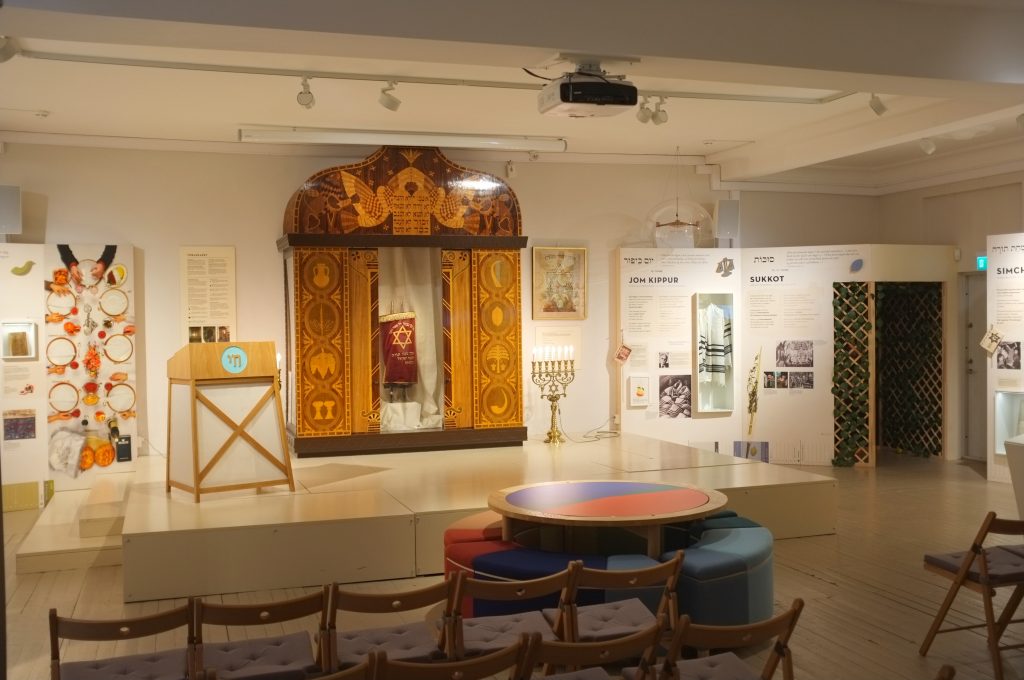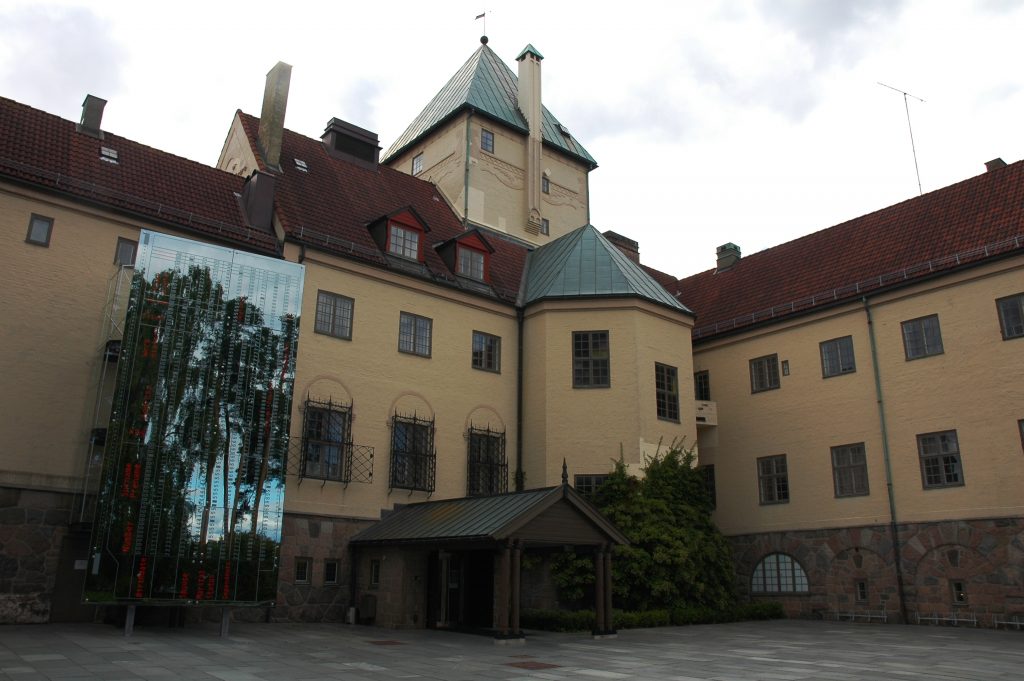Until the end of the Middle Ages there were no Jews in Norway, which was ruled by Denmark until 1814. It was not until the beginning of the 19th century that they settled very tentatively, especially Sephardic Jews.

Henrik Wergeland (1808-1845), a pastor’s son and theology student, was known for his poetry and his political commitment to human rights, an expression he used regularly a hundred years before the United Nations Charter. Among his concerns was the fate of the Jews, excluded from the Kingdom of Norway since 1814. He addressed parliament four times to have this ban lifted. He also fought this battle in his poetry, describing the Jews and their culture. In 1851, six years after Wergeland’s death, two-thirds of parliament voted to end the ban. In 2003 a large exhibition was dedicated to him.
Following the decision of the Norwegian Parliament, Jews timidly settled in the country, most of them coming from Germany. At the end of the 19th century, it was the case of Jews from Eastern Europe, fleeing pogroms, mainly from Russia, Poland and the Baltic States. The very difficult living conditions at that time motivated the departure of many Norwegians and Jewish refugees who were in transit to the United States. It is estimated that 800,000 Norwegians migrated to America between the 1880s and 1920s, for a country with a population of just over 2 million.

A large proportion of Norwegian Jews worked as merchants or craftsmen, accompanying the economic development of the country. As their integration progressed, the Jews were able to diversify their professions, especially in medicine and culture, like the violinist Jacques Maliniak (1883-1943). They lived mainly in Oslo and Trondheim, but also in sixty-two other municipalities, in very small numbers in these cases. Thus, there were only 25 Norwegian Jews in 1866, 214 in 1890 and 642 at the turn of the century.
On the eve of the Second World War, the Jews were fully integrated into society, adopting Norwegian as their first language and living on Norwegian time. They participated in all sectors in economic and cultural circles. Quisling’s Nazi party, in the pay of the German occupiers, soon began a campaign of denigration of the Jews and confiscation of their property. Files, prepared even before the outbreak of the war made it possible to identify the places where the Jews lived.
On 6 October 1942 the first mass arrests of Norwegian Jews began in Trondheim. They tried to oppose these acts, including Moritz Rabinowitz, a philanthropist and educator of the working class who was murdered, along with his family. The courage of Norwegian resistance fighters saved many Jews, helping them to flee the country across the Swedish border. During the Holocaust, more than a third of the 2,200 Norwegian Jews were deported. Only 29 survived.

In the aftermath of the war, Norwegian Jews founded a new community. Among these survivors was Kai Feinberg, who also told in his autobiography how painful it was for him, the only survivor of his family, to return “home” and find that the homes of the Jews had been given to other families.
Following articles about the spoliations in 1995, the Norwegian authorities studied the issue and in 1999 voted for compensation for Norwegian Jews, one of the first European countries to resolve this injustice.
Today, Norwegian Jews number less than 2,000 in the whole country, mainly in Oslo and Trondheim. Since 2009, Jews have been the target of a resurgence of antisemitism wearing different masks, as in many other European countries.

The Norwegian community can pride itself on having given Israel a minister: the great rabbi Michael Melchior, who became a deputy in 1999 and later a member of the Barak government in charge of relations with Diaspora Jews.
Although strictly Orthodox, Rabbi Melchior (son of the former grand rabbi of Denmark, Bent Melchior) belongs to the center-left party Meimad.
Sources : Jewish Life and Culture in Norway : Wergeland’s Legacy, Encyclopaedia Judaica, Times of Israel